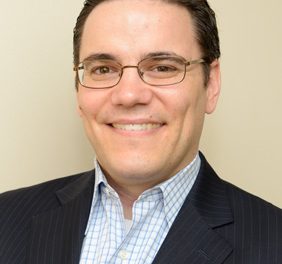
All is not well in Mugabe’s Zimbabwe
 The axial principle of that world is a dismal science called economics which requires that yodelling politicians of yesterday provide answers to society’s key question of limited means against unlimited need
The axial principle of that world is a dismal science called economics which requires that yodelling politicians of yesterday provide answers to society’s key question of limited means against unlimited need
If newspaper reports are anything to go by, many Zimbabweans are finally waking up to the reality that the economic honeymoon brought about by the Government of National Unity (GNU) is over. The GNU saw sworn enemies Robert Mugabe and Morgan Tsvangirai form an uneasy coalition in 2009 that somehow managed to ease the suffering of millions of Zimbabweans, and crucially bring back investor confidence into the economy.
However, the stable macro-economic environment enjoyed during the short-lived GNU is fading into a distant memory as businesses, and by extension, ordinary citizens are beginning to feel the effects of a disputed election.
While Zimbabwe is blessed with a vast, skilled human resource base and plenty of natural resources, this has not propelled the country to economic greatness as politicians continue to brazenly push for economic policies and agendas that are out of sync with economic fundamentals to the detriment of the Zimbabwean economy or what’s left of it.
Zanu PF “won” the disputed 31 July elections at the back of an indigenisation and economic empowerment mantra that promised instant riches to gullible voters as government takes over 51% shareholding in companies in strategic sectors.
Nathaniel Manheru, a die-hard defender of Mugabe last week uncharacteristically painted a not-so -rosy picture of the indigenisation programme and Zimbabwe after the July elections. In an aptly titled op-ed “Victory without a Party”, Manheru, believed to be Mugabe’s spokesperson George Charamba ,“shocks” readers with his indictment of Zanu PF’s controversial indigenisation and economic empowerment policies.
In his sobering opinion piece which points to a country that is in a race with itself to the bottom, Manheru puts into perspective the current economic situation prevailing in Zimbabwe after all the grand standing and electioneering by politicians in the run up to the elections.
“The fastest casualty of electoral victory is the happy world of campaigning where everything is possible. After that world goes, in comes an imperfect and dismal one, a world where “it can’t”. The axial principle of that world is a dismal science called economics which requires that yodelling politicians of yesterday provide answers to society’s key question of limited means against unlimited needs,” Manheru opined.
He said five years after its declaration, indigenisation and economic empowerment does not have a single policy document, a coherent economic argument or model, beyond a cryptic slogan text.
“In the few months that have gone past since July 31, Francis Nhema [Indigenisation Minister] has been busy paring down the notions of indigenisation and economic empowerment…. And that he can do so bears out my point about a policy-free normative ideal. It can be individuated depending of course on who is at the helm. Hard behind him breathes the panting and dazzled Patrick Chinamasa, all his hoarse, pre-election voice now sliding with remarkable ease on the slippery honeypot of IMF discourse! You talk to him, he tells you we need policy clarity on two issues: agriculture and indigenisation. You talk to him, he says we have to find ways of lowering country risk so we reduce borrowing cost.”
The economy is burning
While politicians continue to push the indigenisation agenda seemingly without bothering themselves about the folly of such a policy, the reality on the ground is Zimbabwe is heading for a disaster.
Contrary to the spirit of the ill-thought Indiginesation programme, key assets, including state assets, are being sold to foreigners at a song as Zimbabwean companies grapple with a liquidity crisis. Long winding bank queues reminiscent of the 2008 era have resurfaced due to shortages of cash in banks.
The Zimbabwean Herald, the official mouthpiece of the Zanu PF government, this week reported that the economy is suffocating from a liquidity crisis, and Zimbabwean exports have become uncompetitive in the region because of the overvalued US dollar compared to the South African Rand. Companies have now resorted to outsourcing the manufacturing of their products to other companies in the region due to increased production costs.
The Herald said producing locally has become too expensive for companies as a result of production inefficiencies emanating from the use of obsolete equipment, absence of long-term credit, power shortages among other factors. This has resulted in capacity utilisation in the manufacturing sector declining from 44.9 % in 2012 to 39.6% this year. Mugabe has been portrayed as a hero by many Africans because of his stance against the West, but the truth is his economic policies have been nothing but a disaster. After his “defeat” in the July elections, a defiant Tsvangirai made the now famous statement that Mugabe can rig an election but he can not rig the economy. Current events in Zimbabwe are slowly turning this “sour statement” into a prophetic one.











































